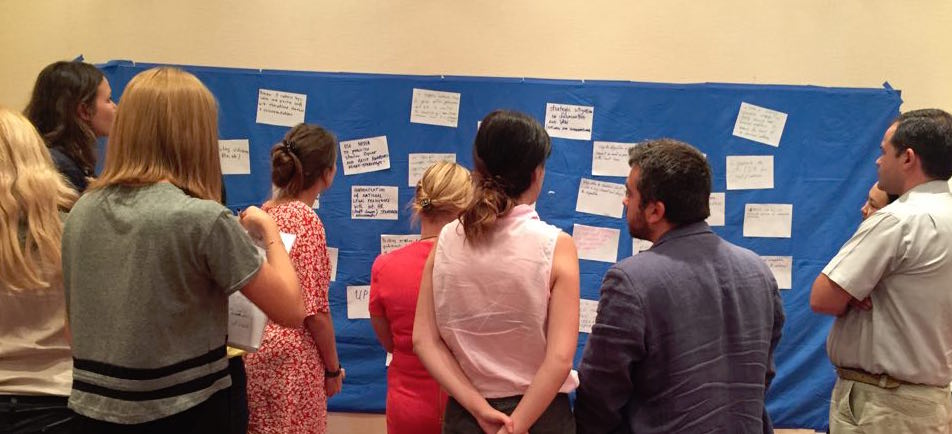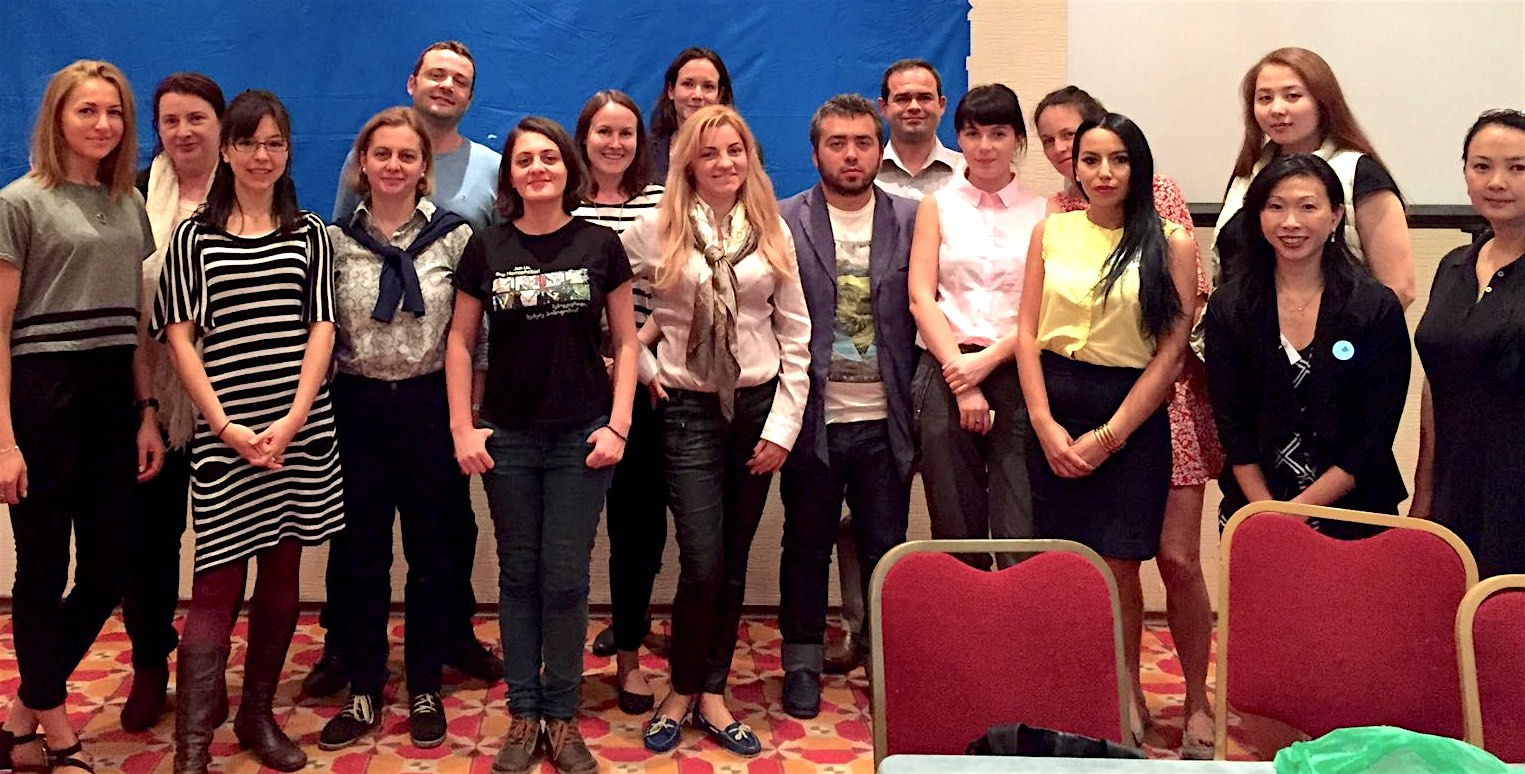Advancing Women’s ESCR in Central and Eastern Europe
The Women and ESCR Working Group, in partnership with ESCR-Net member Bulgarian Gender Research Foundation, held a workshop on advancing women’s economic, social and cultural rights in Sofia, Bulgaria on October 3 and 4, 2016. The workshop focused on both understanding the international human rights framework relating to women’s economic, social and cultural rights as well as how participants can make the most of this framework in their work. The workshop included 14 individuals from organizations based in Albania, Belarus, the Czech Republic, Georgia, Hungary (ESCR-Net member European Roma Rights Center (ERRC)), Kyrgyzstan, Macedonia (ESCR-Net member Association for Emancipation, Solidarity and Equality of Women (ESE)), Moldova, Romania, Russia and Ukraine.

The workshop began with participants reflecting on the question of one key economic, social and cultural rights issue that they would like to advance in their work, a question that was revisited at the end of the workshop. The workshop provided an overview of rights contained in the International Covenant on Economic, Social and Cultural Rights (ICESCR) and general comments, concluding observations and jurisprudence produced by the Committee on Economic, Social and Cultural Rights (CESCR), particularly in relation to women’s economic, social and cultural rights. A couple sessions were dedicated to understanding how ICESCR and the Convention on the Elimination of All Forms of Discrimination against Women (CEDAW) can be used together to advance women’s economic, social and cultural rights, including providing examples of how this has been done in relation to women and land, health and work. These sessions were followed by a case study exercise during which participants put into practice this understanding of how to use the two treaties and jurisprudence produced by both Committees in an integrated and complementary manner to strengthen their advocacy work on substantive equality with respect to women’s economic, social and cultural rights. Lucy McKernan from ESCR-Net member Global Initiative for Economic, Social and Cultural Rights led a couple sessions of the workshop, sharing practical insights and tips about engaging with CESCR and the CEDAW Committee to advance women’s economic, social and cultural rights and providing specific examples of the ways in which CESCR has taken up a gender analysis in relation to its interpretation of ICESCR.

Additional sessions focused on: the implications of ICESCR and CEDAW obligations on budgetary processes and decisions; engagement with UN special procedures for advocacy purposes on women’s economic, social and cultural rights; and mutual learning through a panel discussion, during which participants shared their experiences with parallel reporting to CESCR and the CEDAW Committee. Another session was dedicated to providing an overview of the Optional Protocol to ICESCR (OP-ICESCR), which included information about ESCR-Net’s NGO Coalition for the OP-ICESCR and toolkit that provides practical guidance to advocates regarding ratification and use of the OP-ICESCR.

Finally, the participants engaged in a consensus-building workshop to consider how they might apply the international women’s economic, social and cultural rights framework through practical strategies to advance their specific economic, social and cultural rights issues. The exercise revealed several overlapping and repeated themes including: working to harmonize national legislation with the international human rights framework, developing relationships with CESCR and CEDAW Committee members, advancing the use of strategic litigation, collecting data, engaging with the media as well as with community members, conducting human rights education, utilizing international mechanisms, promoting the OP-ICESCR for ratification and fundraising.
